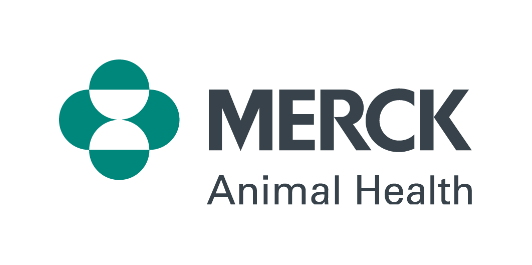Merck Animal Health Commemorates World Rabies Day Emphasizing its Commitment to Fighting Rabies in the World’s Most At-Risk Regions
Partnering with Mission Rabies and Rabies Free Africa, Merck Animal Health supports this year’s World Rabies Day theme #VaccinatetoEliminate. An estimated 59,000 people around the world die from rabies each year – 40% them are children under the age of 15.
MADISON, N.J., September 28, 2019 – Merck Animal Health, a division of Merck & Co., Inc., Kenilworth, N.J., USA, is proud to continue its longstanding partnership with Mission Rabies and Rabies Free Africa to spread awareness of the critical impact vaccines have in preventing and eliminating this devasting disease. Through Merck Animal Health’s Afya program, the company supports these rabies control organizations and this year has reached the milestone of donating three million doses of its rabies vaccine in an effort to reach the goal of eliminating canine-mediated human rabies by 2030.
“Rabies impacts some of the most vulnerable populations, including children in high-risk regions such as India and Malawi,” said Ingrid Deuzeman, Global Marketing Director, Merck Animal Health. “For more than 20 years, we have been working with our partners to eliminate this preventable disease through mass canine vaccination and prevention education initiatives, in areas where much-needed vaccination is often inaccessible. Together with our partners, we are proud to celebrate World Rabies Day and continue to be focused on eliminating rabies by 2030.”
Reaching High-Risk Communities with Rabies Elimination Programs
Since 2013, Mission Rabies has vaccinated dogs across rabies hotspots in India, where over 35% of all human rabies deaths occur. Based on the program’s success in India, Mission Rabies expanded its programs to other parts of Asia and Africa and now has ten international project sites.
“Mission Rabies is dedicated to working toward a world free from canine-transmitted rabies,” said Luke Gamble, BVSc, DVM&S, FRCVS, founder, Mission Rabies. “It’s crucial that we increase awareness about the devastating impact of this deadly disease, and thanks to the support of Merck Animal Health, in the last 12 months there have been zero human rabies deaths in two of our flagship project sites and we are now striving to continue eliminating rabies from other global hotspots.”
In addition to vaccinating dogs in high-risk areas, Mission Rabies travels to schools in rabies endemic communities to educate children about rabies and its prevention. Children, who often come into contact with stray dogs and don’t understand the deadliness of rabies, are most affected by the disease. Using a fast-paced team of veterinarians and volunteers, Mission Rabies has vaccinated over 1,042,000 dogs and educated more than 3 million people about the risk of rabies.
Empowering Self-Sustaining Rabies Elimination Programs in Africa
Each year an estimated 59,000 people die from rabies, with over 99% of cases contracted from a dog bite. To reach the goal of eliminating human death from canine-induced rabies by 2030, Rabies Free Africa is dedicated to increasing access to vaccines in countries such as Kenya and Tanzania. To accomplish this, the organization is working to empower countries to create self-sustaining programs to eliminate human rabies deaths and set up surveillance systems to identify and contain future outbreaks.
“Canine-mediated human rabies has the highest fatality rate of any known infectious disease,” said Felix Lankaster, DVM, Ph.D., Rabies Free Africa, Paul G. Allen School for Global Animal Health, Washington State University. “Our partnership with Merck Animal Health has given us the resources needed to make major strides in reducing the incidence of rabies and advancing research to develop scientifically-backed programming that helps increase the efficiency and effectiveness of mass-canine rabies vaccination programs.”
The effective control of rabies through dog vaccination in the communities targeted by Rabies Free Africa in the Mara Region of northern Tanzania has had benefits for wildlife, including endangered African wild dogs, which have become re-established in the Serengeti National Park for the first time since the population disappeared as a result of rabies outbreaks in the early 1990s.
About the Afya Program
The Afya Program comprises a number of rabies control projects supported by Merck Animal Health rabies vaccine donations, including Rabies Free Africa, Mission Rabies and The Sharon Live On Project. These projects have been brought together under the name “Afya,” which means “health” in Swahili. The Afya Program is committed to supporting the Zero by 30 Initiative, with the goal of eliminating rabies by 2030. For more information, visit www.afya.org.
About Merck Animal Health
For more than a century, Merck, a leading global biopharmaceutical company, has been inventing for life, bringing forward medicines and vaccines for many of the world’s most challenging diseases. Merck Animal Health, a division of Merck & Co., Inc., Kenilworth, N.J., USA, is the global animal health business unit of Merck. Through its commitment to the Science of Healthier Animals®, Merck Animal Health offers veterinarians, farmers, pet owners and governments one of the widest ranges of veterinary pharmaceuticals, vaccines and health management solutions and services as well as an extensive suite of digitally connected identification, traceability and monitoring products. Merck Animal Health is dedicated to preserving and improving the health, well-being and performance of animals and the people who care for them. It invests extensively in dynamic and comprehensive R&D resources and a modern, global supply chain. Merck Animal Health is present in more than 50 countries, while its products are available in some 150 markets. For more information, visit www.merck-animal-health.com or connect with us on LinkedIn, Facebook, and Twitter at @MerckAH.
